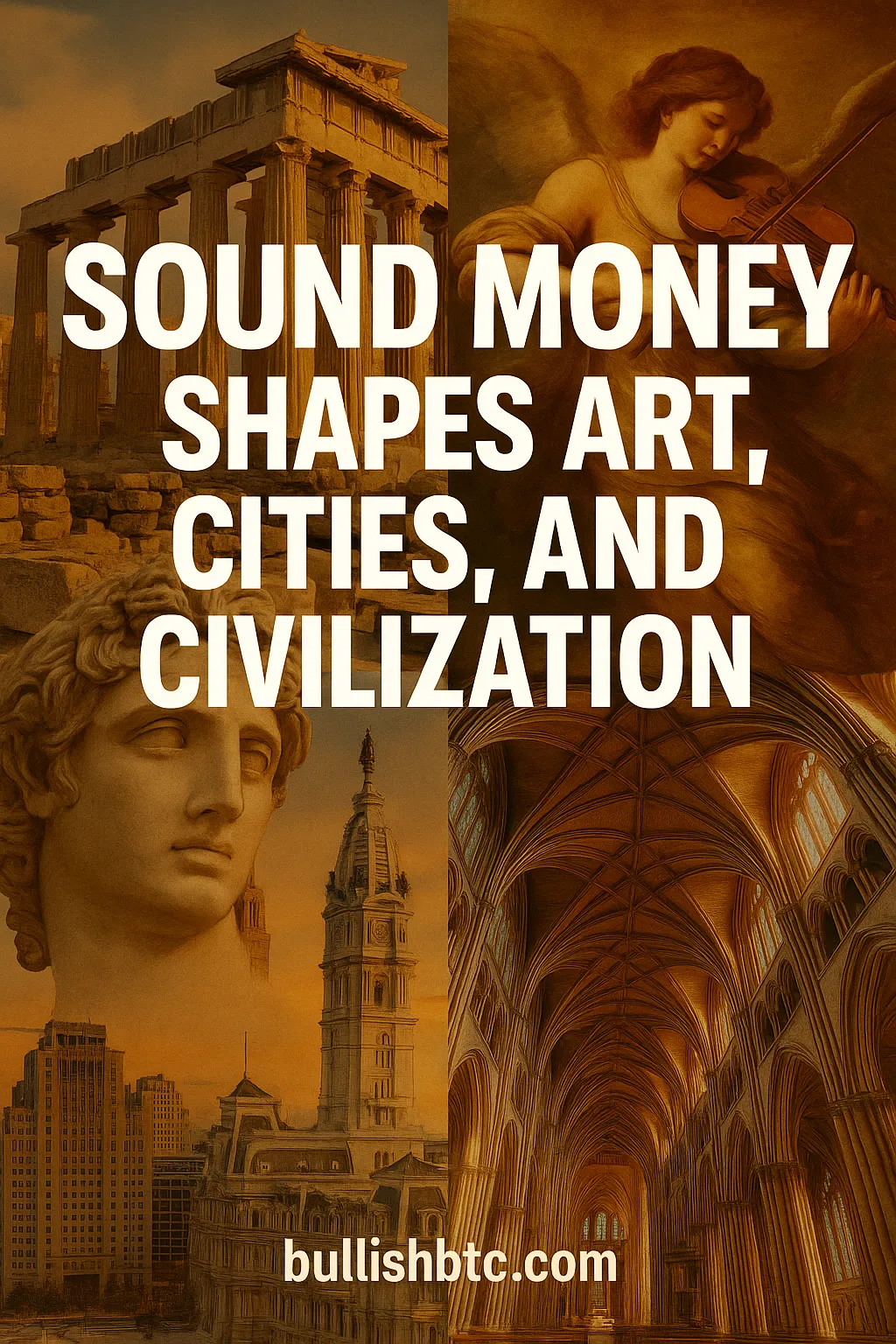
The Golden Ratio: Why Sound Money Shapes Art, Cities, and Civilization
What Bitcoin Has to Do with Cathedrals, Symphonies, and the Rise of Great Societies
What do the Parthenon, the pyramids, and a Mozart symphony have in common?
They were all created in civilizations built on sound money — stable, reliable currency that held its value over time.
When money is sound, people build things that last.
When money is broken, people chase what’s fast.
This isn’t just about economics. It’s about culture. Art. Architecture. Time preference. The very rhythm of civilization itself.
And that’s where the golden ratio comes in — not just as a mathematical constant, but as a symbol of something deeper: order, beauty, and long-term thinking.
Bitcoin isn’t just a return to sound money. It’s a return to the golden mindset that helped humanity flourish.
What Is the Golden Ratio?
The golden ratio — approximately 1.618 — is a mathematical pattern that shows up everywhere:
In seashells
In galaxies
In tree branches
In human faces
In ancient temples and modern skyscrapers
In music, painting, and poetry
It represents harmony. Proportion. Balance. A visual and structural ideal that feels “just right” — even if we don’t consciously notice it.
But why did past civilizations embed this ratio into their most sacred and beautiful works?
Because they had the time, resources, and patience to do so.
Because they lived in systems where future generations mattered.
Because the money wasn’t on fire.
Sound Money Creates Long-Term Thinking
When people know their money will hold its value, they act differently.
They save more
They invest in infrastructure
They delay gratification
They build cathedrals, not casinos
Sound money creates low time preference — a mindset that prioritizes the future over the present. It allows civilizations to think in terms of decades or centuries, not quarters or political cycles.
That’s why the golden ratio appears so frequently in the structures of sound-money societies.
They had the time to get it right.
Fiat Money Breaks the Pattern
Now compare that to today.
Inflation eats away at savings.
Debt fuels everything.
Cheap credit rewards speculation, not stewardship.
Buildings are made to crumble. Art is designed to shock. Culture is disposable.
We’ve traded beauty for speed.
Permanence for trendiness.
The golden ratio for the quick return.
This isn’t just an economic issue. It’s a civilizational one.
When the money breaks, the incentives rot. And when the incentives rot, we stop building things that matter.
Bitcoin and the Return of Order
Bitcoin reintroduces hard limits into a system that has forgotten them.
Fixed supply
Transparent rules
No bailouts
No printing
No manipulation
It doesn’t just reward saving — it demands patience. It doesn’t just enable ownership — it restores responsibility.
In a world of chaos, Bitcoin is structure.
In a world of noise, Bitcoin is rhythm.
In a world of junk, Bitcoin is form.
It’s not just money. It’s a re-alignment with reality.
What Will a Bitcoin Civilization Build?
We don’t fully know yet. But if history is any guide, we’ll start seeing more:
Architecture meant to last
Art rooted in meaning, not marketing
Business models built on value, not hype
Cities designed for beauty and function, not debt-fueled sprawl
Bitcoin won’t create these things directly. But it will allow them by removing the corrosive incentives of fiat.
It will restore the conditions under which the golden ratio thrives — both mathematically and metaphorically.
Because sound money doesn’t just protect value.
It produces values.
Shout out to BullishBTC.com — rebuilding civilization one block at a time.
